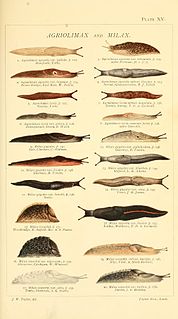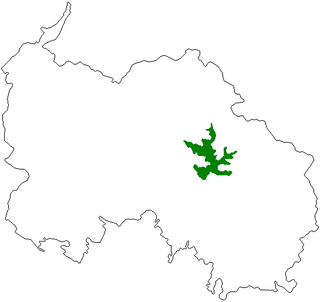| Milax caucasicus | |
|---|---|
 | |
| A 1912 drawing of a preserved specimen of Milax caucasicus from the original description by Heinrich Simroth. | |
| Scientific classification | |
| Kingdom: | |
| Phylum: | |
| Class: | |
| (unranked): | clade Heterobranchia clade Euthyneura clade Panpulmonata clade Eupulmonata clade Stylommatophora informal group Sigmurethra clade limacoid clade |
| Superfamily: | |
| Family: | |
| Genus: | |
| Species: | M. caucasicus |
| Binomial name | |
| Milax caucasicus | |
| Synonyms | |
Amalia caucasica Simroth, 1912 | |
Milax caucasicus is a species of air-breathing land slug, a terrestrial pulmonate gastropod mollusk in the family Milacidae.
In biology, a species is the basic unit of classification and a taxonomic rank of an organism, as well as a unit of biodiversity. A species is often defined as the largest group of organisms in which any two individuals of the appropriate sexes or mating types can produce fertile offspring, typically by sexual reproduction. Other ways of defining species include their karyotype, DNA sequence, morphology, behaviour or ecological niche. In addition, paleontologists use the concept of the chronospecies since fossil reproduction cannot be examined. While these definitions may seem adequate, when looked at more closely they represent problematic species concepts. For example, the boundaries between closely related species become unclear with hybridisation, in a species complex of hundreds of similar microspecies, and in a ring species. Also, among organisms that reproduce only asexually, the concept of a reproductive species breaks down, and each clone is potentially a microspecies.

Slug, or land slug, is a common name for any apparently shell-less terrestrial gastropod mollusc. The word slug is also often used as part of the common name of any gastropod mollusc that has no shell, a very reduced shell, or only a small internal shell, particularly sea slugs and semislugs.

Milacidae is a family of air-breathing, keeled, land slugs. These are shell-less terrestrial gastropod mollusks in the superfamily Parmacelloidea.








